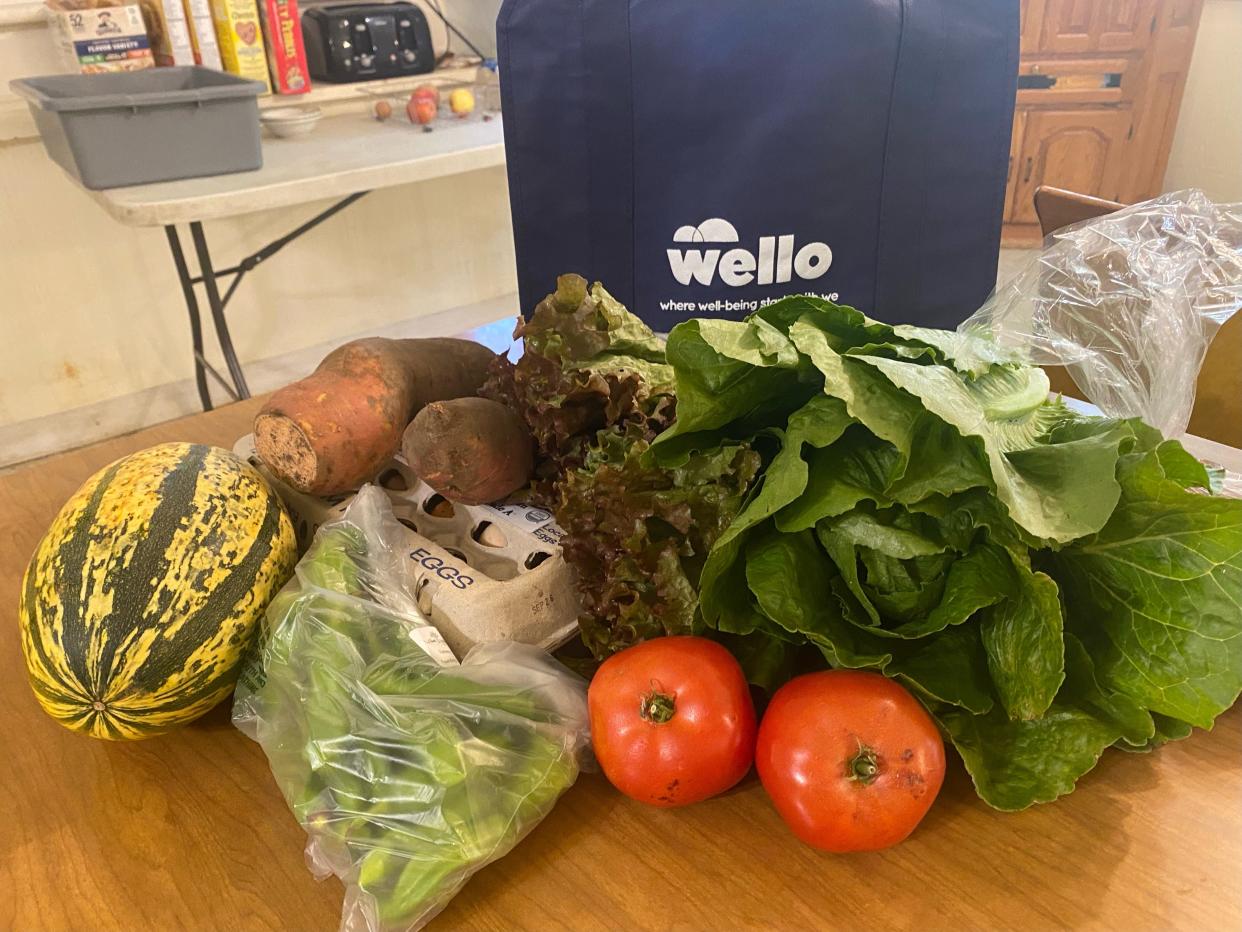Small, winning partnerships allow trust and relationships to build into larger community impact

When we talk about improving the well-being of our community, we’re well aware of how overwhelming that can be or how that can seem like too lofty of a goal. However, instead of allowing that line of thinking to stop us in our tracks, we start small, identify win-wins, and build the relationships and trust that move us closer to taking on bigger and bigger challenges.
This model of starting small, identifying the win-wins and building on them for larger scale change and impact is what Wello is designed to do. This is also the approach we take on any project or initiative aimed at equitably improving well-being. The best way to see this model in action is to break down an existing project from its starting stages to its current status. Let’s get started.
Cultivating Community
The COVID-19 pandemic impacted everyone in our community, especially our Latinx neighbors. In conversations with our partners at Casa ALBA Melanie, we learned that many of their clients were struggling with food insecurity — not having access to nutritious foods to meet an individual or family’s basic needs — and many food distribution and support programs left them out.
In response, Wello wrote for a Wisconsin Partnership Program grant and received funds to work with Seasonal Harvest LLC, a local farming hub, to purchase local fruits and vegetables. The food was delivered every two weeks during the summer months to Casa ALBA for their clients. In addition, grant funds were sent to our local farmers markets to help offset the cost of opening and operating the markets during the pandemic. Families received Market Bucks to spend at farmers’ markets to buy additional fresh fruits and vegetables. During this first season, our community was able to serve 480 individuals directly with food purchased from local farms.
This experience not only met the basic needs of a population in crisis but also deepened existing relationships and forged new trust. When we turned the page to 2021, food insecurity remained and the pandemic recovery was slow. Wello worked with our partners to identify a solution that worked for them and funding to support it. Having a year under our belt, we expanded our reach to partners at We All Rise: African American Resource Center with funding from the Basic Needs Giving Partnership Emergency Response grant, Brown County United Way and Nicolet National Bank. During this second season, we served 2,160 individuals directly with food purchased from local farms and additional innovations emerged, like local farms growing jicama for the project and to sell at the farmers markets based on feedback from the community.
In 2022, Wello secured an Advancing a Healthier Wisconsin grant to continue funding this project for an additional two seasons and further develop innovations co-created with our partners, like industrial refrigerators to be able to accept and distribute meat. We were able to add Crusaders de Justicia in Manitowoc as a partner and Community Services Agency Inc., or COMSA, to serve our refugee population with additional funds from the Brown County United Way, Schneider and Nicolet Bank. This was also the year we tested our mobile farmers market onsite at the resource centers to see if clients of these resource centers were more likely to purchase local produce at their trusted resource centers (they were).
As we gear up for the fourth year of the program in the summer of 2023, we will be expanding our partner list to include the Asian American Resource Center, including local food from Hmong farmers in the Cultivating Community boxes, and working with our community to evaluate the project and its impact.
MORE: State, national recognition helps Wello shine spotlight on local well-being efforts
MORE: Here are four 2023 community well-being projects to look forward to from Wello
Key takeaways
So, what have we learned? There are several key takeaways that stand out.
Food needs must be met in ways that address systemic challenges which include economic injustice, racism, environmental challenges and social isolation. To address these barriers, you start small in order to build trust with partners, to be innovative and nimble so you can pivot when needed to set yourself up for success, and connect with partners who value the work. You build on that success, grow the model and expand to increase your reach to have the co-created impact felt at the community level. For well-being truly starts with WE.
Mario Gonzalez is the communications and marketing manager for Wello. Wello's purpose is to co-create community conditions that are fair and just to drive high levels of health and well-being for all. Share your thoughts, questions, and topic suggestions by emailing hello@wello.org.
This article originally appeared on Green Bay Press-Gazette: Starting small is key to Wello's community level impact

